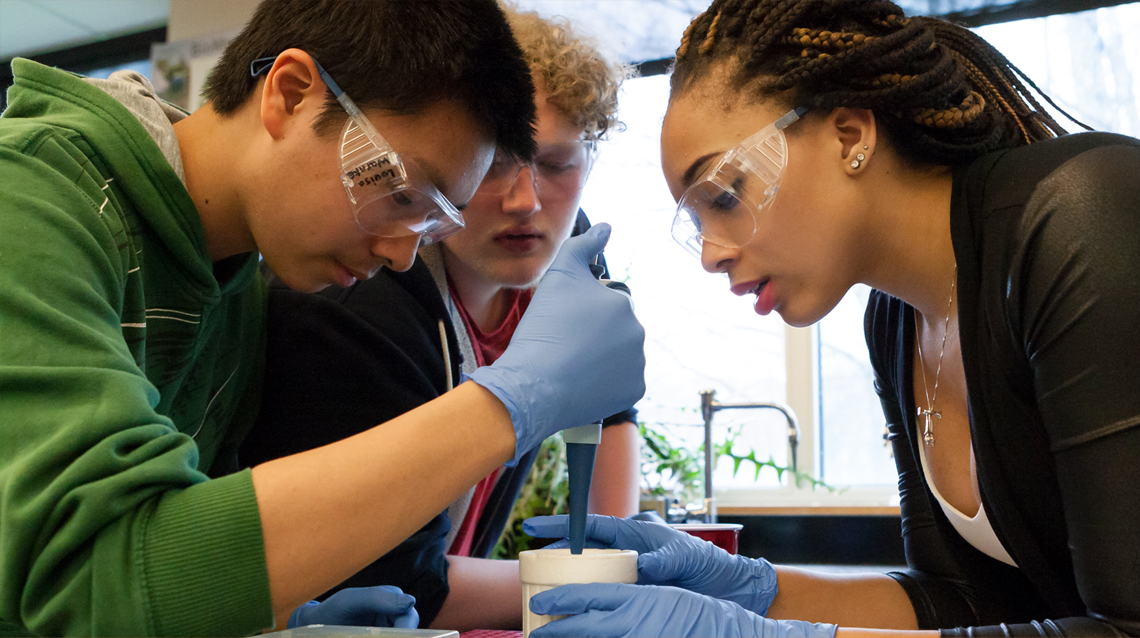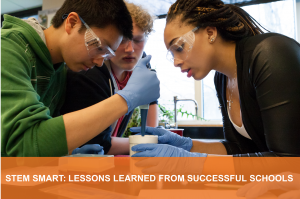Brief
STEM Smart
Evidence-Based Resources, Promising Practices, and Tools in Support of Effective K–12 STEM Education
Connected Science Learning March 2016 (Volume 1, Issue 1)
By Barbara Brauner Berns

STEM Smart meetings bring together educators, advocates, policy makers, and STEM thought leaders. The resulting Briefs allow all educators to learn about the meetings’ valuable takeaways.
Since 2011, the Community for Advancing Discovery Research in Education (CADRE), housed at Education Development Center, has been collaborating with the National Science Foundation on a series of national and regional STEM Smart meetings, which bring together educators, advocates, policy makers, and STEM thought leaders.

Particularly useful resources resulting from these meetings are easy-to-read STEM Smart Briefs on a number of STEM education issues, including:
- connecting informal and formal STEM education,
- career and technical-education pathways,
- engineering education,
- improving STEM curriculum and instruction,
- young learners (preK–3),
- preparing and supporting STEM educators,
- preparing students for college and career,
- raising the bar and increasing STEM achievement for all students,
- specialized STEM secondary schools, and
- teaching and learning under the Next Generation Science Standards.
The STEM Smart meetings build upon the findings of two important National Research Council reports: (1) Successful K–12 STEM Education: Identifying Effective Approaches in Science, Technology, and Engineering and Mathematics and (2) Monitoring Progress Toward Successful K–12 STEM Education: A Nation Advancing?
Each one-day STEM Smart meeting focuses on successful approaches to STEM teaching and learning, emphasizing the implications of these reports for practice. Meeting topics vary from STEM education more generally to areas such as college and career readiness, science instructional materials, early elementary education, engineering education, middle-skill occupations, education technologies, and partnerships.
The most recent meeting took place on February 1, 2016, and focused on evidence-based instructional materials, primarily in science. Materials from all nine meetings appear on www.successfulstemeducation.org. There is also biographical information on all presenters and descriptions of their work.
Each agenda is customized to reflect the context of the local region and the meeting’s theme. However, there is always attention to equity, the needs of different participant groups attending the meetings, and at least one presentation from a STEM school. Each meeting welcomes around 250 attendees, with hundreds more on waiting lists or accessing resources on the STEM Smart website.
Barbara Brauner Berns (BBerns@edc.org) is Senior Program Director at the Education Development Center in Waltham, Massachusetts.
STEM Middle School Elementary High School Informal Education


